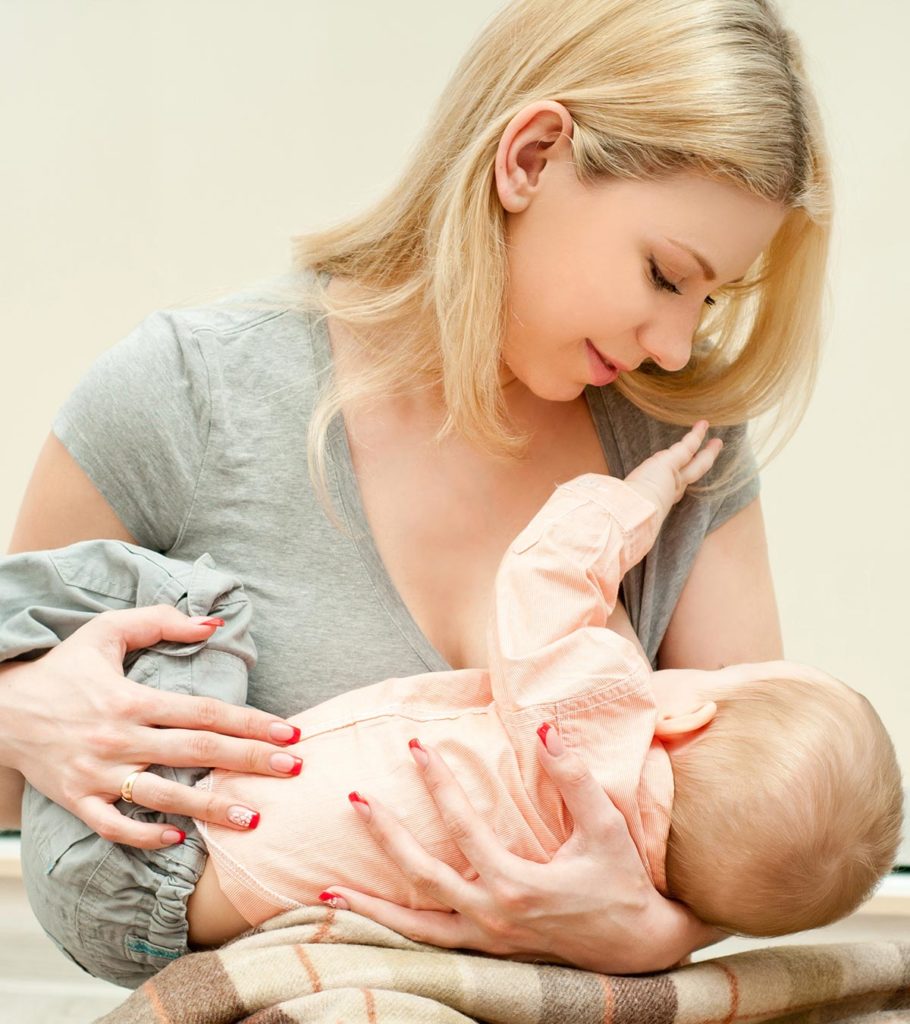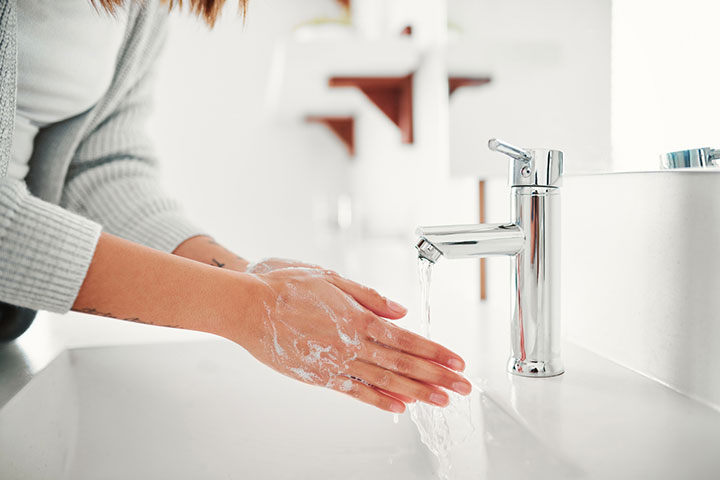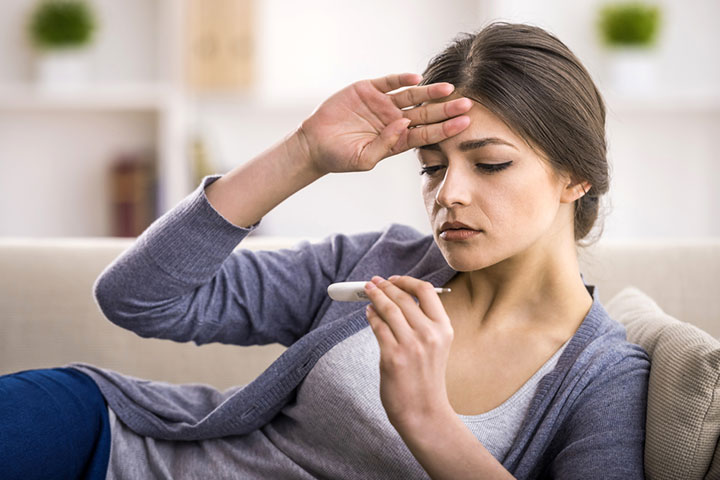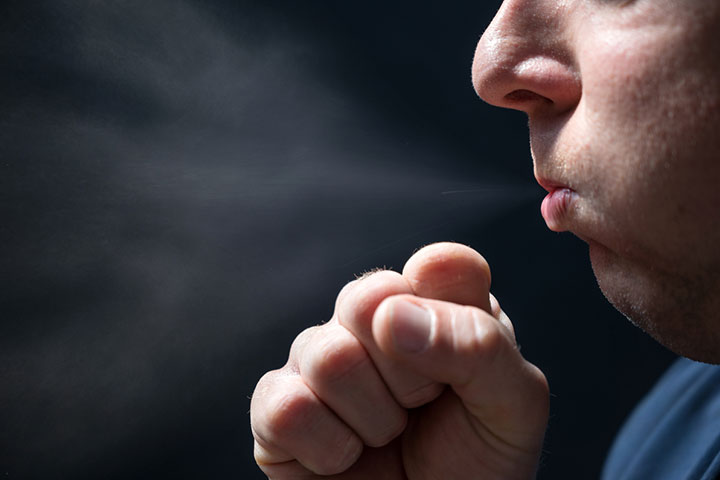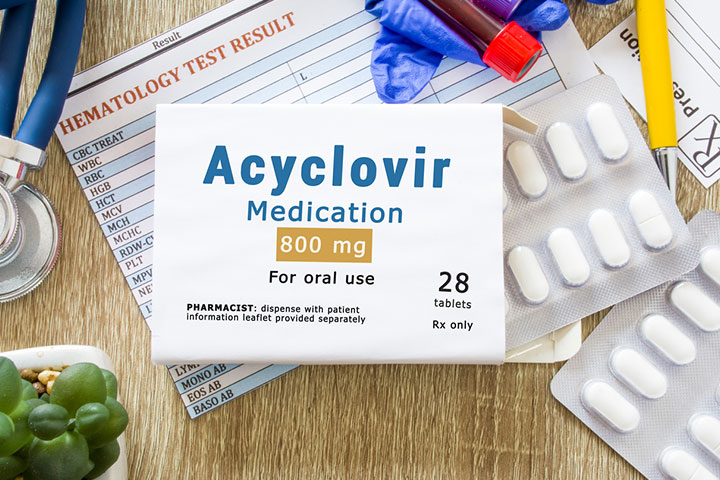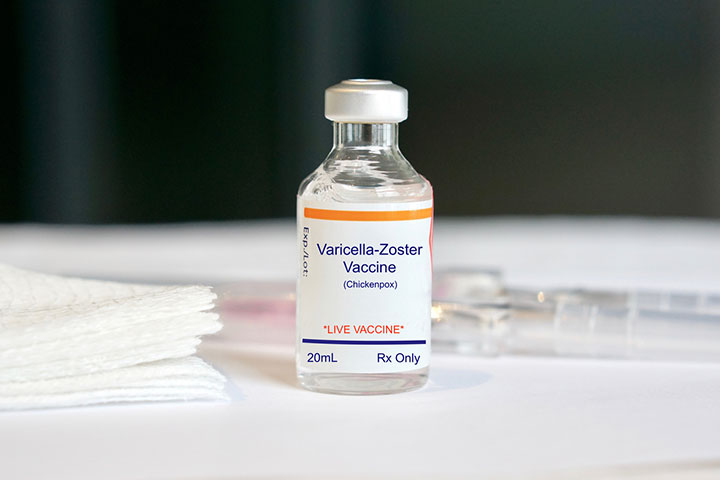Breastfeeding during chickenpox is not always contraindicated; you may continue to breastfeed, covering the vesicles (blisters) on the breast and other areas to minimize the spread of the virus. However, it is recommended not to breastfeed if you have vesicles on the areolaiXThe dark skin that encircles the nipple in the breast where the baby’s mouth can touch.
Nursing moms who contract chickenpox five days prior or two days after delivery need immediate medical care to avoid infecting the newborn (1). You may also wear a mask to prevent spread from sneezing and coughs and maintain hand hygiene. In addition, seek help from a medical professional to know alternate infant feeding options.
Read on to know more about the causes, symptoms, tests, infection prevention, and treatments for chickenpox in breastfeeding mothers.
Is It Safe To Breastfeed When Having Chickenpox?
Breastfeeding is usually avoided if the mother develops chickenpox less than five days before or two days after the childbirth. In such cases, breast milk is expressed for feeding. But there is not enough evidence to support this. The options are mostly individualized, hence it is good to consult your doctor.
Mothers can produce protective antibodies, and babies could get this through the placenta if the mother develops infection more than five days before childbirth. If chickenpox occurs after the third day of childbirth, then mother-to-child transmission of maternal antibodies or immunoglobulins can happen through breast milk. These immune factors from human milk can give passive immunity to the baby against neonatal varicella. Mothers can breastfeed, and isolation is not required during this time.
If you develop chickenpox while breastfeeding, seek advice from your healthcare provider to determine the safety of nursing during these days. Your doctor may refer you to a lactation consultant to help you make better nursing decisions during this viral condition. You may have to express breast milk and feed the baby if recommended by your lactation consultant.
Precautions For Breastfeeding During Chickenpox
Ensuring child health is crucial when it comes to breastfeeding. The following precautions can be taken by infected mothers while breastfeeding (2).
- Wash hands: Wash your hands properly with soap and water before touching the baby. It should also be done before preparing food for the baby or before contacting the baby’s toys, clothes, diapers, etc. You may use an alcohol-based sanitizer when soap and water are not accessible.
- Cover the lesions: Direct contact with the rash can cause infection. You should use a cloth to cover rashes on your hands, chest, or anywhere in the body that can come in contact with the baby.
- Wear a mask: Mother-to-child transmission through saliva and mucus droplets can be prevented by wearing a mask while breastfeeding.
You need to be extra careful to prevent the baby’s contact with rash or fluid coming from broken vesicles.
Symptoms Of Chickenpox
After being exposed to the varicella zoster virus (VZV), it may take ten days to three weeks to develop chickenpox symptoms. After this incubation periodiXIt is the period between acquiring an infection and the appearance of symptoms, the disease starts with symptoms of fever and tiredness. A few nursing mothers might have a headache and a loss of appetite.
Skin rashes and watery vesiclesiXThese are tiny blisters on the skin that are filled with fluid start to appear after fever. These can be anywhere on the body and are usually associated with severe itch. The blisters burst in a few days and form a crust. Broken vesicles may take a few days to heal, and typically the viral infection lasts for two weeks (3).
When it comes to maternal health, it’s important to note that mothers who have the primary varicella infection during pregnancy could have severe symptoms compared to those who have a history of previous varicella infection.
Causes Of Chickenpox
Chickenpox is a highly contagious disease caused by the varicella zoster virus. The chickenpox virus can spread through (4):
- Direct contact: The infectious agent can be spread if the person has direct contact with rashes.
- Air droplets: If the person inhales the respiratory droplets from an infected person, while they cough or sneeze, then it could result in viral transmission.
Usually, pregnant women and nursing mothers may contract varicella from infected family members, especially from infected children. According to a study conducted by the Centre for Disease Control and Prevention, approximately 90% of the people in close vicinity of the infected person who are not immune will also become infected. You should take precautions to avoid the varicella virus if one of your family members has an active infection.
Diagnosis Of Chickenpox
Your doctor may diagnose chickenpox infection with clinical history and the type of rashes. Usually, there is no requirement of additional tests for the medical diagnosis of chickenpox. Rarely, blood tests are ordered during chickenpox infection.
If there is a complication, lesion outbreak, or if the rashes appear similar to other skin diseases, then your doctor may order a laboratory analysis to identify the varicella zoster virus.Polymerase chain reaction (PCR) testiXIt is an efficient, highly accurate test for identifying specific infectious diseases and gene mutations is usually used to confirm the presence of varicella zoster virus in the skin lesions (5). Additional tests may be conducted to look for any complications or the presence of other diseases.
Treatment Of Chickenpox In Breastfeeding Mothers
Your doctor may prescribe paracetamol for fever and advise you to take enough rest and fluids as part of disease management. Antihistamines are prescribed if you have severe itching. Ibuprofen and other non-steroidal anti-inflammatory drugs are not recommended for the treatment.
If you consult a doctor within 24 hours after the onset of skin rashes, then they may prescribe an antiviral medication called acyclovir. This could help in reducing the severity and duration of this communicable disease. Acyclovir is safe while breastfeeding. However, there is no significant effect of acyclovir 24 hours after the onset of rashes (1).
Acyclovir therapyiXThese are chemicals or medicines that are used to treat diseases caused by specific types of viruses is given if the babies have neonatal varicella infection shortly after birth (6).
Self-Care Measures To Ease Breastfeeding With Chickenpox
It is essential for breastfeeding mothers to take care of themselves during chickenpox infection. Stay hydrated and eat healthy so that you can provide optimum nutrition to your little one through breastfeeding.
Use creams, lotions, or medications prescribed by the doctor to reduce the itch. The following homecare methods can help you minimize itch and related discomfort (7).
- Apply calamine lotion on the rashes
- Take a cold bath with oatmeal (uncooked) or baking soda in water
- Try to avoid scratching the rashes and keep nails trimmed
These methods could help you reduce itching and secondary bacterial infections from scratching. However, you should seek the doctor’s advice before using any home remedy, especially if you are a new mother with unhealed C-section stitches.
Chickenpox (Varicella) Vaccine When Breastfeeding
Although it is a live attenuated vaccine, the Centers for Disease Control and Prevention does not contraindicate the chickenpox vaccine for breastfeeding mothers. It means that the varicella vaccine is not known to affect safe breastfeeding while the mother has the infection (8).
Mothers who have no immunity to chickenpox may receive two doses of chickenpox vaccine during the postpartum period. The first dose is given before discharge from the hospital after childbirth, and the next dose is scheduled after four to eight weeks (9).
There is no evidence of varicella virus in the breast milk of mothers who receive chickenpox vaccine in the postpartum period (10). Therefore, there is no recommendation to delay the varicella vaccine during postpartum while breastfeeding or to discontinue nursing post-vaccination (11).
Chickenpox may occur through direct contact with an infected person or air droplets. You may experience loss of appetite, fatigue, or headache during the infection. You may continue breastfeeding during chickenpox if your areola doesn’t have the vesicles. However, if they are present on the areola, you may have to express your milk to feed your baby. And if you are infected with chickenpox less than five days before or two days after delivery, you may have to avoid breastfeeding. On the other hand, if you get chickenpox more than five days before or on the third day of delivery, you may be allowed to breastfeed because it will help pass the maternal antibodies to the baby through the milk. However, in any case, consult a doctor for medical advice before breastfeeding your baby.
Key Pointers
- Chickenpox is a contagious viral infection that causes fever, blisters, and itchy red spots.
- Women can continue breastfeeding after taking precautions and consulting a doctor.
- However, breastfeeding may be avoided if the mother develops chickenpox around childbirth.
- Administering a safe vaccine for pregnant women can prevent chickenpox.
- Using lotions or medications prescribed by the doctor may help reduce the symptoms of the infection.
